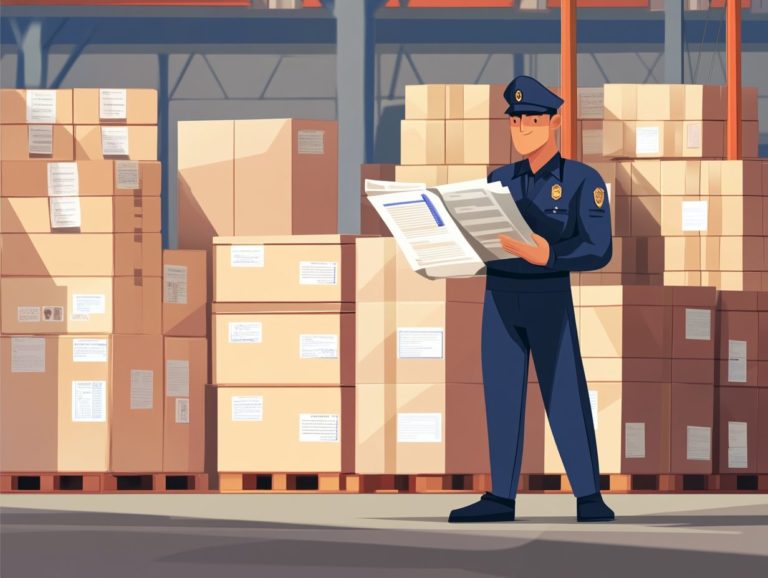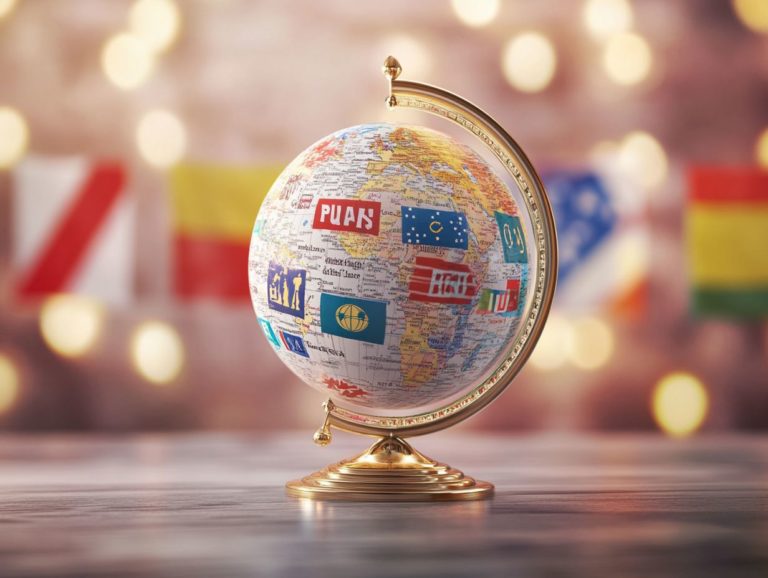The Role of International Organizations in IP Law
Intellectual property (IP) law serves as a cornerstone in the protection of creativity and innovation worldwide. Join us on an exciting journey through the world of IP law!
As technology and commerce continue to evolve at a rapid pace, understanding the frameworks and organizations that oversee IP rights is crucial for protecting your innovations in today’s fast-paced world.
This exploration delves into the definition and significance of IP law, highlights the key international players involved, and outlines the methods employed to safeguard and enforce these rights. It also addresses the challenges you might encounter and the future trends shaping this dynamic field.
Embark on this journey to uncover the essential facets of IP law and its profound impact on a global scale.
Contents
- Key Takeaways:
- Overview of Intellectual Property (IP) Law
- International Organizations and IP Law
- Protection of IP Rights
- Enforcement of IP Law
- International Cooperation in IP Law
- Future of IP Law and International Organizations
- Frequently Asked Questions
- What are international organizations in IP law?
- What is the role of international organizations in IP law?
- How do international organizations enforce IP laws?
- What are some examples of international organizations in IP law?
- How do international organizations promote IP law globally?
- How can individuals and businesses benefit from international organizations in IP law?
Key Takeaways:
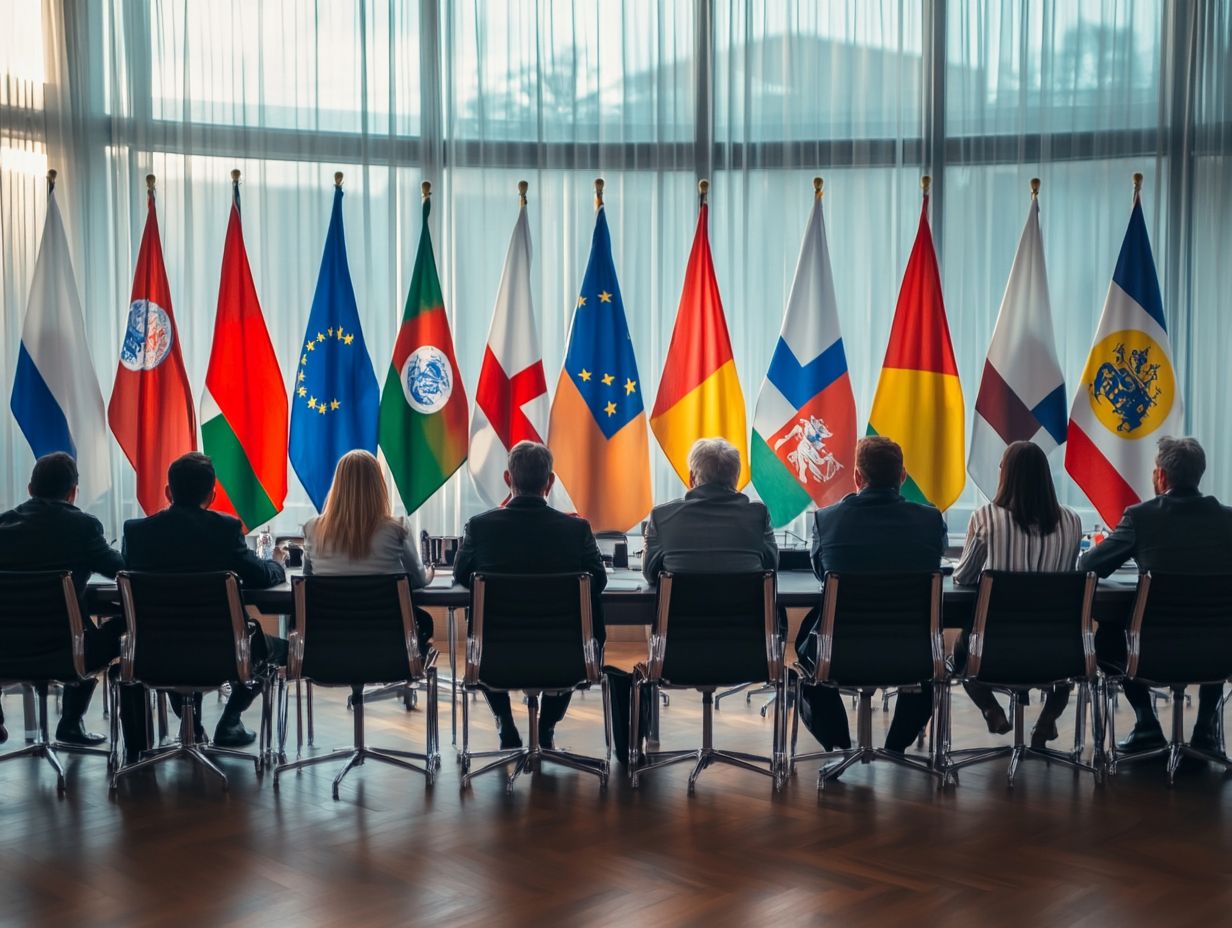
- International organizations play a crucial role in protecting intellectual property rights.
- They promote global cooperation and set standards for IP laws.
- The methods and strategies used in IP law are constantly evolving.
- Collaboration among international organizations is essential to combat infringement and promote innovation.
- The future of IP law will focus on addressing challenges and adapting to technological advancements.
- Ensuring fair and equitable protection of IP rights is vital worldwide.
Overview of Intellectual Property (IP) Law
Intellectual Property (IP) Law encompasses a complex set of rules crafted to safeguard the rights of creators and innovators. It ensures that their unique contributions are acknowledged and rewarded across diverse jurisdictions.
This legal framework is pivotal for nurturing innovation and driving economic development. It regulates the use of patents, trademarks, copyrights, and trade secrets, offering essential IP protection services.
The legal landscape of IP rights varies from nation to nation, shaped by national statutes and international agreements like TRIPS (Trade-Related Aspects of Intellectual Property Rights), which strive to harmonize standards for IP protection globally.
Definition and Importance
Intellectual Property (IP) embodies the fruits of your creativity, encompassing everything from inventions and literary works to designs, symbols, names, and images used in commerce.
Recognizing the importance of IP is vital for nurturing economic growth and innovation. It not only protects your rights as a creator but also fuels new ideas and attracts investments.
By clearly defining ownership, IP rights motivate you to share your creations, contributing to the greater good of society.
Different forms of IP patents, copyrights, trademarks, and trade secrets each play a unique role in the global marketplace. They enable you to monetize your innovations while fostering competition and offering diverse choices to the public.
In this way, a robust system of IP protection stands as a fundamental pillar for both creativity and economic vitality.
International Organizations and IP Law
International organizations hold a critical position in the development and enforcement of intellectual property (IP) law across borders. Notable entities such as WIPO, USPTO, and the WTO actively strive to harmonize IP protection standards and practices among member states, including understanding the role of WIPO in international IP law.
These organizations facilitate cooperation and knowledge sharing while offering capacity-building programs that tackle global challenges in IP law, including the role of national courts in international IP. This ensures that legal frameworks evolve alongside the dynamic landscape of creative activities and technological advancements.
Initiatives like the IP Attach Program and regional organizations, including APEC and ASEAN, significantly bolster the effectiveness of IP law by promoting collaboration among nations.
Key Players and Their Roles
Key players in the realm of intellectual property law include national agencies like the USPTO, international organizations such as WIPO, and legal entities tied to investment agreements and arbitration practices. These entities are pivotal in shaping the landscape of IP regulations.
They establish standards, facilitate compliance, and foster collaboration among various jurisdictions. These players interact in a complex web of communication, where national agencies implement guidelines set by international bodies while adapting to local contexts.
This collaboration enhances the enforcement of IP rights and streamlines dispute resolution by providing structured frameworks for arbitration and negotiation.
Ultimately, their concerted efforts ensure that intellectual property is effectively protected and respected on a global scale, significantly impacting innovation and creativity.
Protection of IP Rights
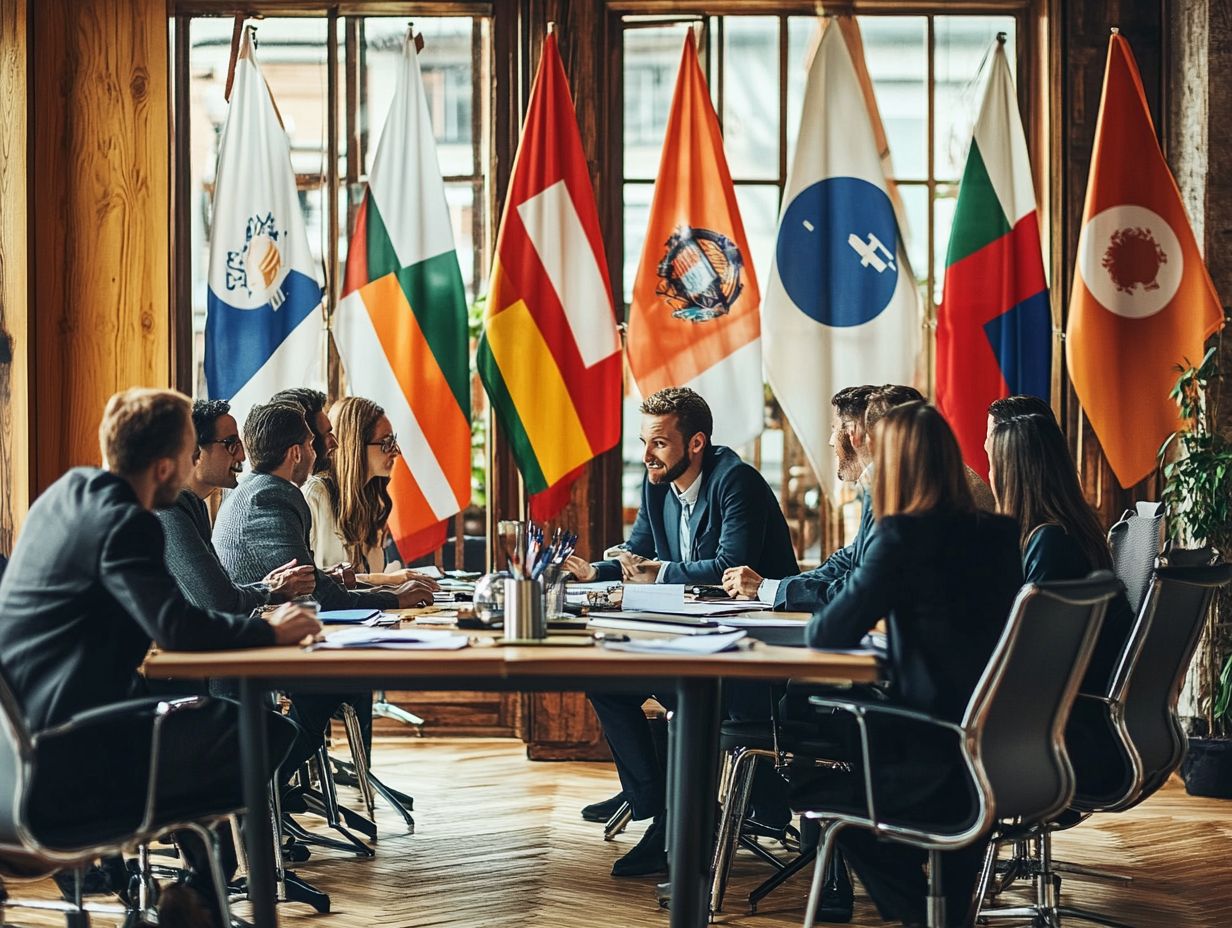
Protecting IP rights is essential for safeguarding your interests as a creator. This involves various methods and strategies tailored to specific national laws and the principle of territoriality that governs IP enforcement worldwide.
Implement effective measures that vary by jurisdiction to ensure your IP protection services competently defend against piracy and infringement.
As innovation evolves, your strategies must also adapt to maintain the integrity of your IP rights.
Methods and Strategies
A variety of methods and strategies are available to ensure robust IP protection, such as using arbitration tribunals, which are places where disputes are resolved outside of court, and understanding the legal nature of IP rights.
Begin with the registration of IP rights to establish ownership and provide a legal foundation for any disputes.
Regular market monitoring is crucial for detecting potential infringements, allowing you to act swiftly when necessary. Proactive enforcement mechanisms, like cease-and-desist letters, play a key role in safeguarding your rights.
Don t underestimate the importance of arbitration tribunals; they provide a structured environment for resolving conflicts outside traditional court systems.
Clear legal definitions in your IP agreements are essential. These definitions establish unambiguous terms that guide interpretation and enforcement, minimizing misunderstandings and fostering smoother business operations.
Enforcement of IP Law
Enforcing IP law is crucial to protecting your creative ideas. A comprehensive legal framework works with different laws in each country and addresses the challenges faced by creators and innovators.
This enforcement landscape requires collaboration between national laws and international treaties, with investment arbitration mechanisms often serving as critical tools for resolving cross-border disputes.
A strong enforcement strategy not only safeguards creators but also stimulates investment in innovation, ultimately driving economic growth.
Legal Framework and Challenges
The legal framework governing intellectual property (IP) rights is intricate, featuring various laws and regulations that enhance enforcement mechanisms while delivering economic advantages to both creators and businesses.
This framework comprises treaties, national legislation, and court decisions that work together to safeguard intellectual property and stimulate innovation. By fostering public-private partnerships, you can navigate the complexities of enforcement more effectively.
However, implementing robust IP laws often faces challenges, such as a lack of awareness among creators regarding their rights and the difficulties of keeping pace with rapidly evolving technologies. Tackling these barriers is essential for cultivating a vibrant environment where creativity can thrive.
International Cooperation in IP Law
International cooperation in IP law is essential for nurturing collaborative efforts among nations.
Organizations such as WIPO, along with various regional entities, unite to elevate the effectiveness of IP rights protection worldwide, including understanding the role of IP in international trade agreements.
Collaborative Efforts and Impact
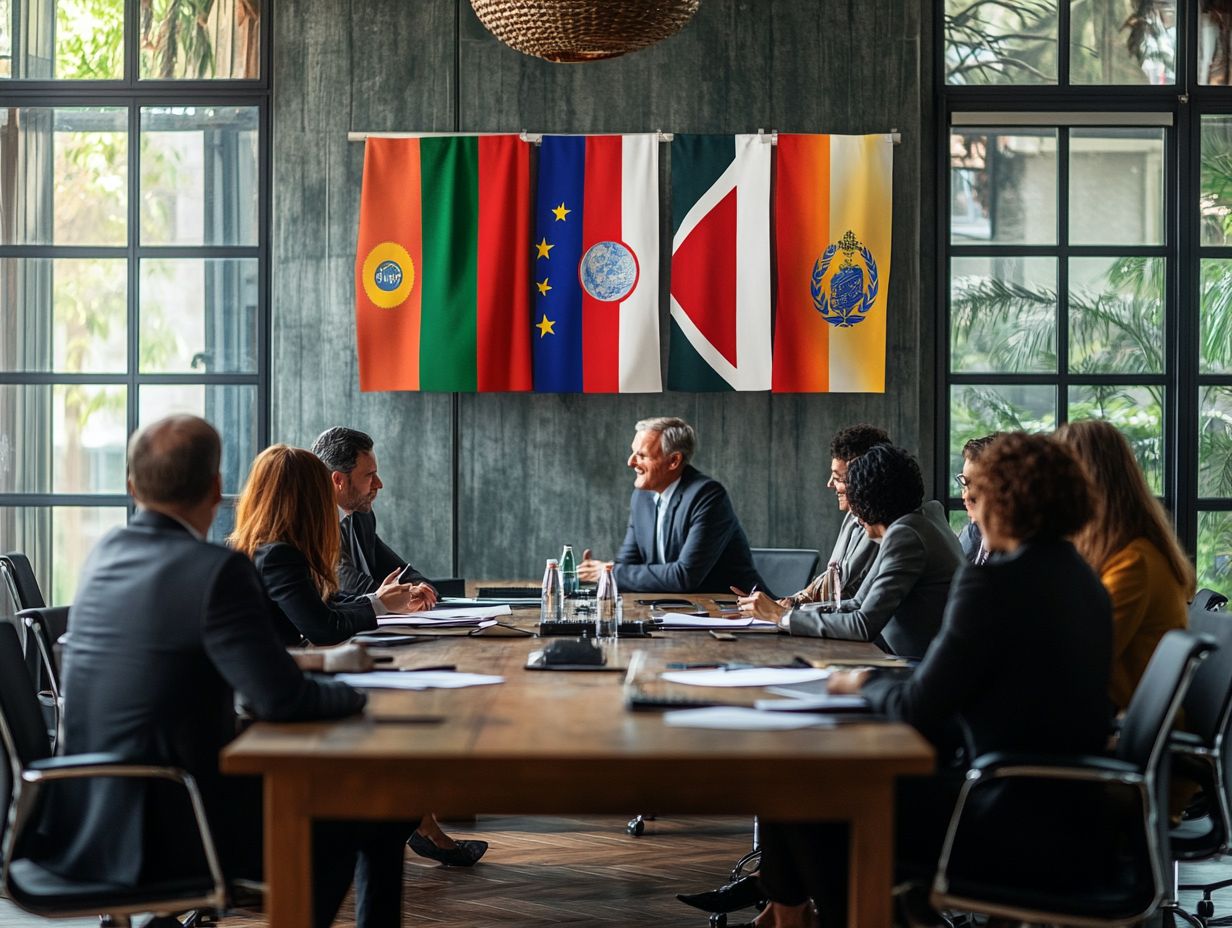
Collaborative efforts among international organizations and Member States shape the landscape of intellectual property (IP) law. By promoting knowledge sharing, they address pressing issues like traditional knowledge and sustainable development goals.
These initiatives create partnerships that facilitate the exchange of best practices and resources, allowing countries to harmonize their IP frameworks effectively. Joint projects have resulted in guidelines that protect indigenous innovations, ensuring local communities benefit from their cultural heritage.
This collaboration enhances IP protections and aligns with sustainable development objectives, promoting equitable access to resources and fostering economic growth.
Ultimately, these efforts underscore the importance of a collective approach in fostering an environment where intellectual property can thrive while supporting broader societal goals.
Future of IP Law and International Organizations
Exciting changes are on the horizon for IP law! International organizations are responding to emerging trends and the ever-evolving landscape of innovation.
IP rights will continue to protect creators and their works. With globalization and technology driving these changes, collaboration among organizations like WIPO and OECD will be crucial.
This teamwork will address new challenges and help shape policies that reflect the dynamic nature of IP rights today.
Trends and Potential Developments
Emerging trends highlight the need to adapt to global challenges. Digital technologies, investment agreements, and cultural development are evolving rapidly.
As more content goes online, the landscape becomes complex, filled with both opportunities and obstacles. While digital platforms make sharing creative works simpler, they also increase the risk of unauthorized use and piracy.
In our global economy, varying IP laws can create confusion in enforcement and protection. Whether you’re an individual creator or part of a corporation, staying informed about these developments is essential.
Your intellectual property rights’ future depends on how well you advocate for fair and robust legal frameworks.
Frequently Asked Questions
What are international organizations in IP law?
International organizations are entities formed to promote and protect intellectual property rights globally. They consist of member countries working together to develop agreements, policies, and standards for regulating IP use and protection.
What is the role of international organizations in IP law?
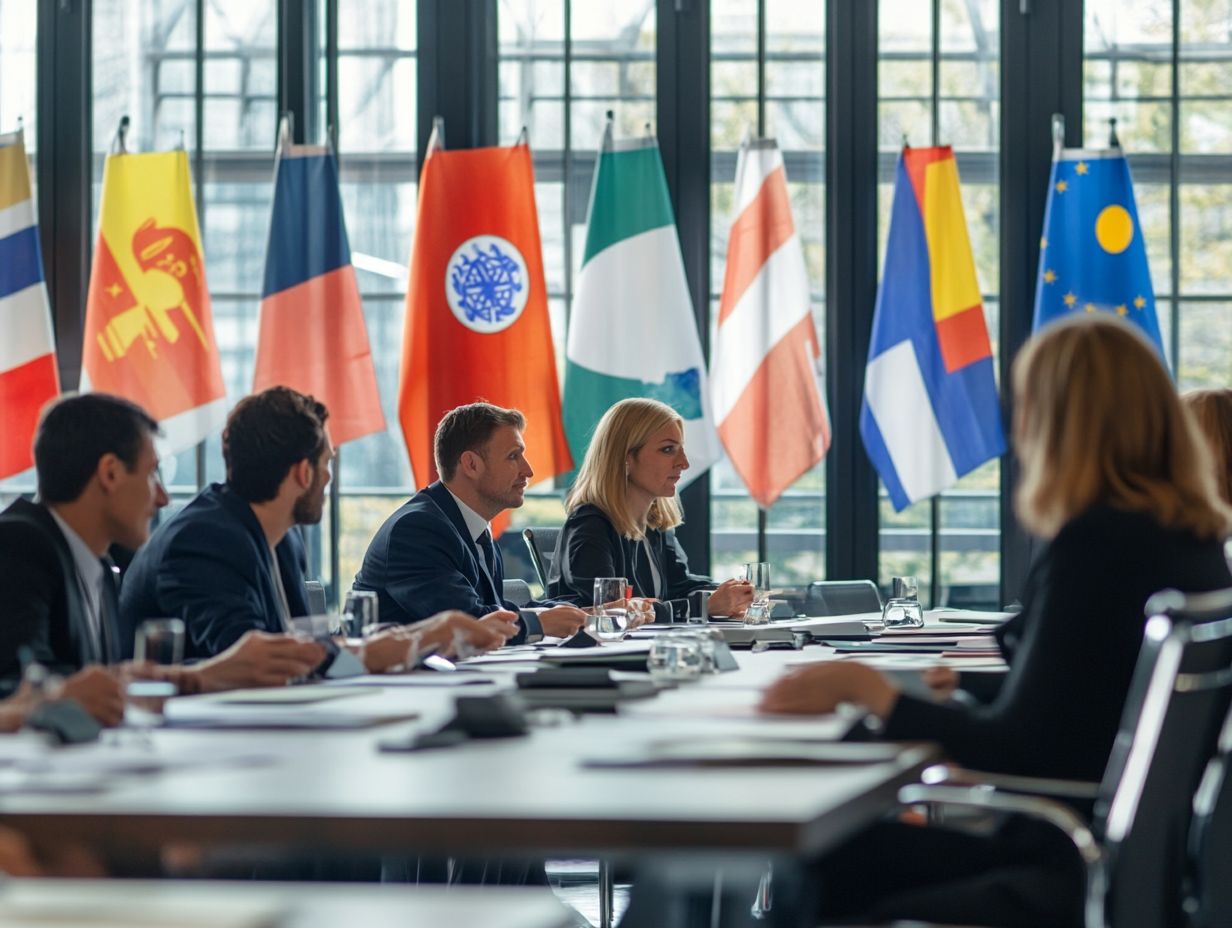
The main role is to facilitate cooperation among member countries. They develop and implement effective IP policies and serve as platforms for resolving IP protection and enforcement issues.
How do international organizations enforce IP laws?
While they lack direct enforcement powers, international organizations collaborate with member countries to develop enforcement mechanisms. This includes technical assistance and dispute resolution services.
What are some examples of international organizations in IP law?
Examples include the World Intellectual Property Organization (WIPO), the World Trade Organization (WTO), and the International Union for the Protection of New Varieties of Plants (UPOV). Each focuses on promoting and protecting IP rights in different areas.
How do international organizations promote IP law globally?
They promote IP rights by assisting member countries in developing effective laws and policies. Additionally, they conduct research and provide training to enhance understanding of the role of IP lawyers in international cases and the importance of IP rights.
How can individuals and businesses benefit from international organizations in IP law?
Individuals and businesses gain protection for their IP rights on a global scale. These organizations strive to create a balanced system that fosters innovation, leading to economic growth and development.


